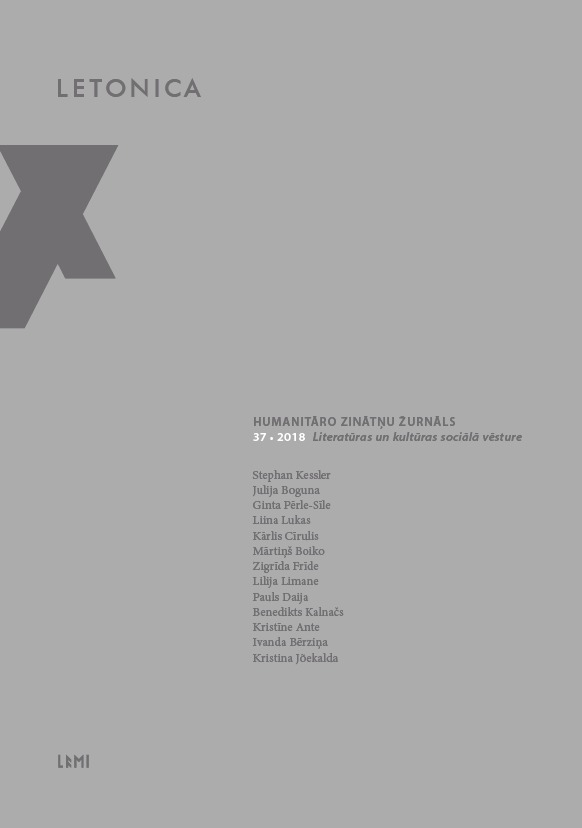Palsmanes mācītāja Frīdriha Daniela Vāra sabiedriskā, literārā un folkloristiskā darbība 18. un 19. gadsimta mijā
The Palsmane Pastor Friedrich Daniel Wahr’s Social, Literary and Folkloristic Activities at the Turn of the 18th and 19th centuries
Author(s): Ginta Pērle-SīleSubject(s): History, Cultural history, Museology & Heritage Studies, Customs / Folklore, Regional Geography, 18th Century, 19th Century, Translation Studies
Published by: Latvijas Universitātes Literatūras, folkloras un mākslas institūts
Keywords: Enlightenment; folk songs; Palsmane; Baltic Germans; education of peasants
Summary/Abstract: Friedrich Daniel Wahr (1749−1827) was a pastor of a Baltic German origin, a representative of the Enlightenment movement, who over his lifetime provided a great contribution to the development of Latvian literature and folkloristics. F. D. Wahr had studied at the Frederick’s College and the Albert University (Albertus Universität) in Konigsberg (now Kaliningrad), where he supposedly came in touch with the ideas of Pietism and Enlightenment. Straight after he graduated from the university, he went to Livonia and in an unusually short time was ordained as a pastor for the parishes of Palsmane and Aumeistari, where he worked all his life. Along with the activities of the pastor, F. D. Wahr actively worked as a translator both localising German texts and writing his own texts. The most important work of the pastor is his and Gustav Bergmann’s (1749−1814) book Palcmariešu dziesmu krājums (Song Compilation of Palsmane Inhabitants, 1808) published in Rūjiena, which at that time was the biggest collection of folk songs compiled by one individual (413 folk songs). It was also the first collection that was structured in chapters. The author of this article has examined whether and to what extent F. D. Wahr has ben an innovator or rather a follower taking into account the context of the time period. The author has also questioned to what extent these were occasional activities and to what extent it was goal-orientated work. The author has gathered the data on Palsmane and its surroundings in terms of the social and cultural aspects at the turn of the 18th and 19th centuries, which so far have not been studied. The author has also listed the literary works of F. D. Wahr providing an insight, as well as brief reflections on the creation of the Song Compilation of Palsmane Inhabitants.
Journal: Letonica
- Issue Year: 2018
- Issue No: 37
- Page Range: 38-50
- Page Count: 13
- Language: Latvian

